Tra aporie e natura, il suono di Paradoks si tinge di sfumature dai bassi potenti e melodie in grado di raccontare la sua storia.
Partiamo dalla definizione tratta dall’Enciclopedia Treccani: “aporìa s. f. [dal gr. ἀπορία «difficoltà, incertezza», der. di ἀπορέω «essere incerto»]. – In filosofia, difficoltà di fronte alla quale viene a trovarsi il pensiero nella sua ricerca, sia che di tale difficoltà si ritenga raggiungibile la soluzione sia che essa appaia intrinseca alla natura stessa della cosa e quindi ineliminabile“.
Abbiamo fatto questa doverosa premessa perché oggi vi proponiamo l’intervista ad un Dj che ha fatto del paradosso il proprio marchio: Paradoks. Abbiamo avuto modo di parlare con lui di tantissime cose e, fra queste, quelle che più ci hanno colpito è notare come la sua idea di “immersività” – nella società circostante, nella musica – siano radicati all’interno di un trascorso fatto di paradossi.
Paradossi, appunto, che si sollevano (e mai potrebbero solversi) proprio attraverso la musica, tanto potente quanto brillante. Senza ulteriori indugi buttiamoci all’interno di questo paradosso musicale, sperando di venirne a capo.
Per altri contenuti esclusivi – interviste, approfondimenti e tanto altro – clicca qui!
Ciao Paradoks, benvenuto su Parkett! Vorrei iniziare con il tuo nome: il paradosso è un concetto filosofico molto forte. Perché hai scelto la parola “Paradoks” per identificare la tua musica? Pensi che sia legato al ruolo che la natura gioca nella tua musica?
Ciao, grazie per avermi ospitato! In effetti, come hai notato, il mio nome d’artista Paradoks deriva da Paradox, con la k dal mio vero nome, Kobe. Non ho scelto questo nome a caso, c’è una storia dietro: ho scelto questo nome perché c’è stato un periodo della mia vita pieno di paradossi. Stavo studiando per la mia laurea in management e facevo musica come Kobe M. Spesso in fase di meditazione, per esempio, e mi trovavo a combattere con il mio pensare. Volevo impedirmi di pensare, ma non è così che funziona la meditazione.
Mi dicevo “Smettila di pensare!” e mi resi conto che questo era un pensiero in sé. Ed eccomi lì, a pensare di fermarmi a pensare, il che era un grande paradosso per me all’epoca. Non puoi “smettere di pensare” pensando di fermare i pensieri! Questo è solo un esempio dei paradossi che ho dovuto affrontare.
C’era anche un paradosso importante legato alla mia musica: stavo già suonando le mie produzioni nei club e ho avuto un assaggio di ciò che fosse la vita di un artista di musica elettronica.
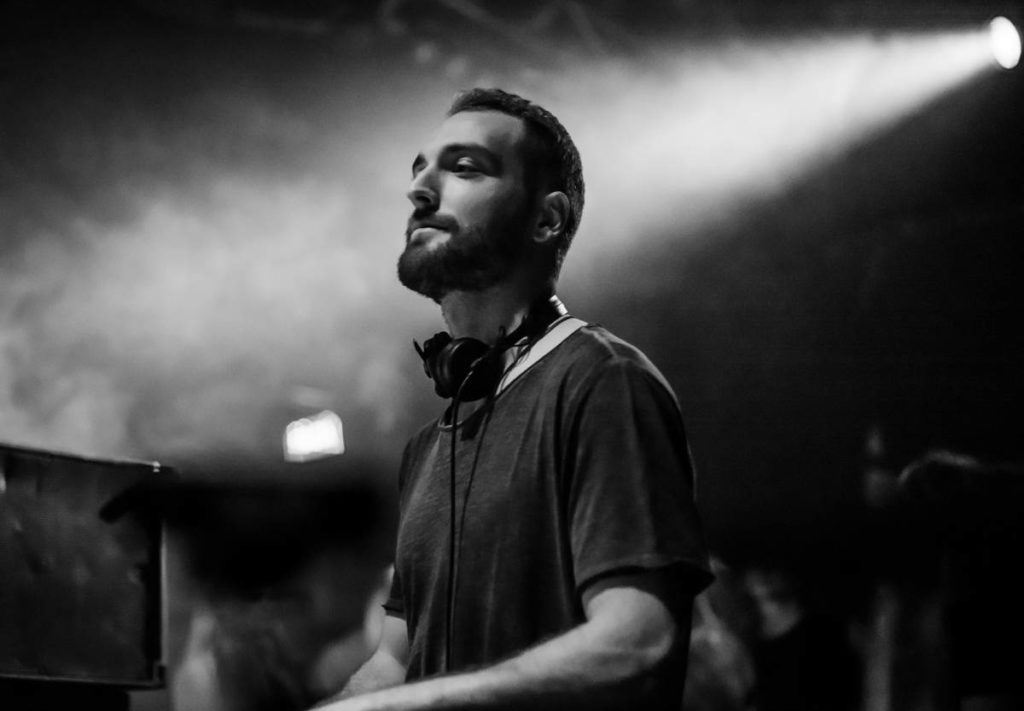
Paradoks. © Foto Ufficio Stampa.
Sapevo che questo mi soddisfaceva e sapevo che tutto questo mi stava portando gioia. Decisi di concentrarmi sul “farcela” come artista, mentre finivo gli studi per tenere aperte altre porte. Ma dal momento in cui ho deciso di avere questo come obiettivo principale della mia vita, ho iniziato ad avere notti insonni e molta ansia. Ancora una volta ha causato un paradosso: dal momento in cui ho iniziato a concentrarmi sulla mia passione e al fine di renderlo un lavoro per guadagnarmi da vivere, all’improvviso ho sperimentato il contrario e ho sentito forte ansia in questa ricerca.
Anche le nostre menti sono piene di contraddizioni, e quindi mi è venuto naturale usare Paradoks come nome d’artista. Per la seconda domanda, il significato del nome non è necessariamente legato alla natura, sebbene io mi senta molto legato a questa.
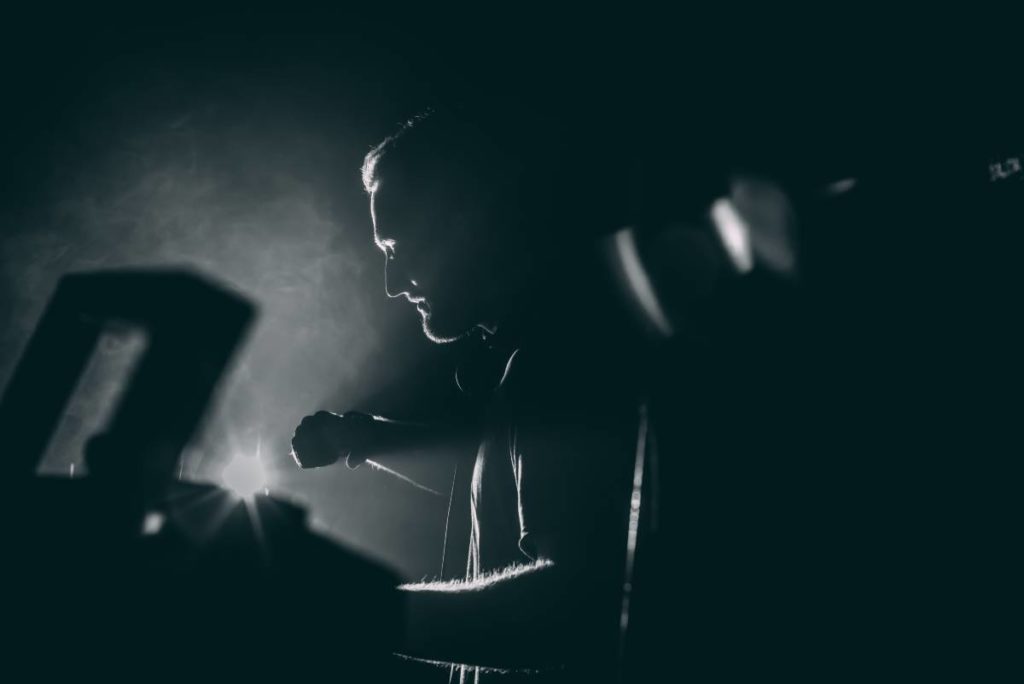
Paradoks. © Foto Ufficio Stampa.
La connessione tra la tua musica e la tua natura sembra così forte. Ho ascoltato il tuo dj set registrato di recente sulle montagne svizzere. Pensi che la tua musica sia ispirata dal suono della natura? O forse preferisci semplicemente creare un contrasto tra la natura e il tuo suono?
Come accennato in precedenza, mi sento molto legato alla natura: ci trovo pace e tranquillità,
e ciò naturalmente ispira la mia musica; non direi però che la mia musica sia direttamente ispirata dal suono della natura.
Ascolto spesso i miei progetti mentre cammino nei boschi per dargli un contesto e un’altra prospettiva, che inevitabilmente collega la mia musica all’ambiente circostante. Quando faccio un live streaming nella natura, ad esempio, penso a brani che potrebbero abbellire davvero lo scenario e possano aggiungere un qualcosa di speciale al luogo.
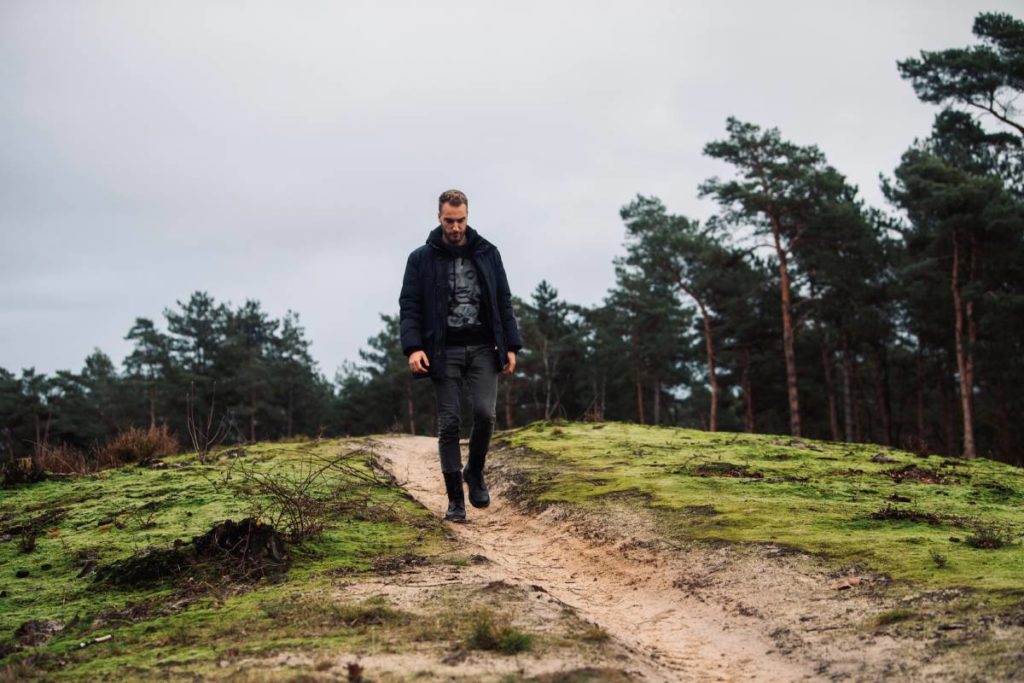
Paradoks. © Foto Ufficio Stampa.
Per quanto riguarda il contrasto, penso che sia un concetto molto importante nella musica e lo sto applicando sempre di più alle mie canzoni, ma non sto cercando di creare un contrasto tra la natura e il mio suono.
Preferisco di gran lunga suonare all’aperto piuttosto che club chiusi, perché un cielo aperto è un collegamento diretto con la natura, il nostro habitat iniziale e aggiunge una dimensione di leggerezza e gioia alle feste.
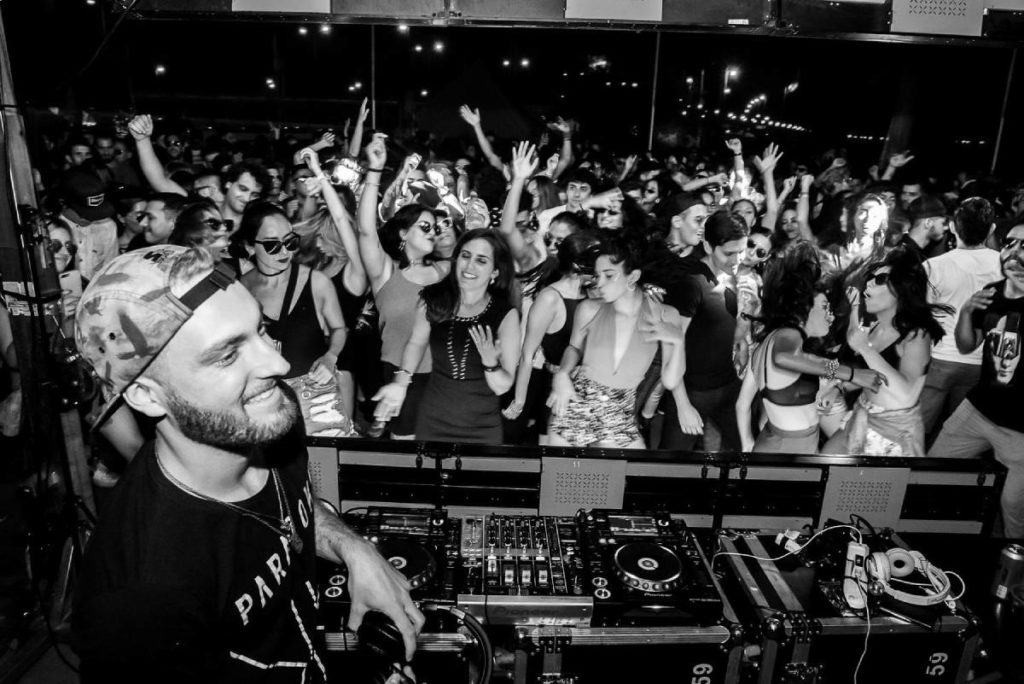
Paradoks. © Foto Ufficio Stampa
La tua musica è caratterizzata da forti calci e melodie acute. Alcuni altri artisti creano questo tipo di groove – penso a Tale Of Us, alle vecchie produzioni di Tiesto o a Eric Prydz. Che tipo di sensazioni vuoi trasmettere con la tua musica?
Esatto: mi piacciono dei bassi potenti, buone melodie. In questo modo riesco sempre a caratterizzare la mia musica come melodiosa, ma forte al contempo. Voglio trasmettere emozioni e momenti speciali all’ascoltatore attraverso il movimento – che si tratti di ballare, guidare, correre, andare in bicicletta, camminare. Le persone sono fatte per il movimento – e la musica (ndr) – è il modo più naturale per goderselo.
Avere dei bassi potenti alimenta quella voglia di movimento, mentre le melodie raccontano storia. Ciò consente agli ascoltatori di interpretare il brano a modo loro e di immergersi nella propria immaginazione.
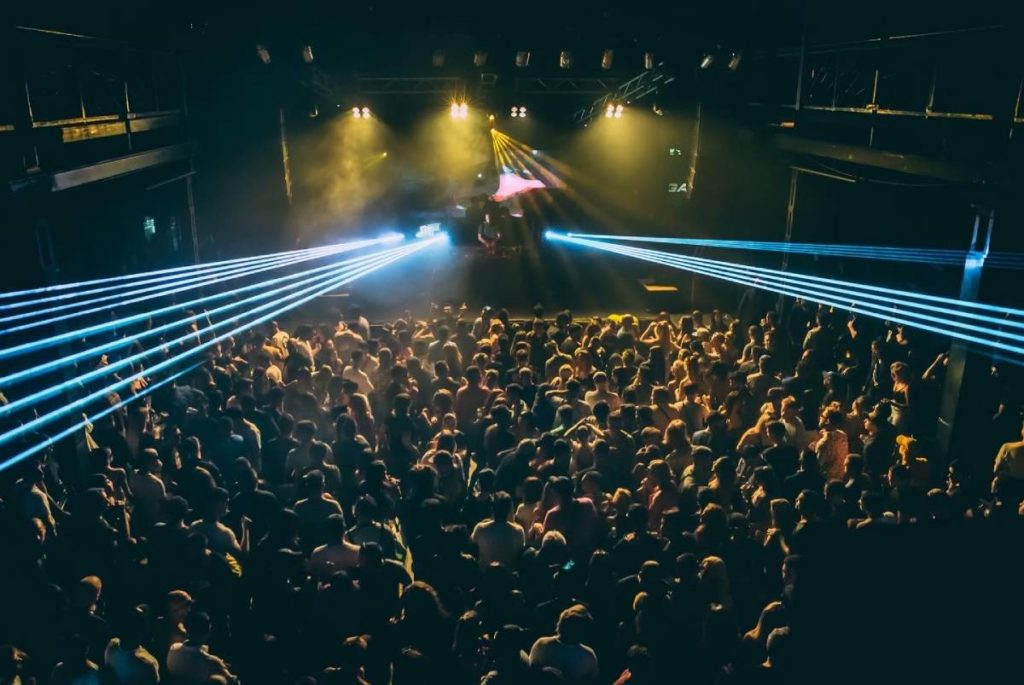
Paradoks. © Foto Ufficio Stampa
Nel 2021 hai prodotto molta musica ricevendo il supporto di molti grandi artisti – Nora en Pure, Oliver Koletzki e molti altri. Il tuo sound è particolarissimo. Quanto conta la sperimentazione nella tua musica?
È divertente perché questo venerdì ho suonato a Zurigo e ho provato alcuni nuovi brani che ho realizzato negli ultimi mesi. Immediatamente alcune persone sono venute da me chiedendomi se fossero i miei nuovi inediti.
Questo dimostra davvero che ho un mio suono, le persone riescono a riconoscerlo come identitario. Questo è molto positivo ed anche interessante, perché non lo sto ricercando pedissequamente. Penso che sia solo il modo in cui scrivo le melodie, arrangio e mixo le mie tracce: in pratica mi viene naturale.
Per me è importante provare sempre cose nuove. Ho molte belle tracce che aspettano nella mia libreria, ma non le pubblico perché suonano troppo come qualcosa che ho già fatto. Sarebbe troppo comodo. Credo che molti artisti cadano nella trappola di proporre costantemente lo stesso sound.
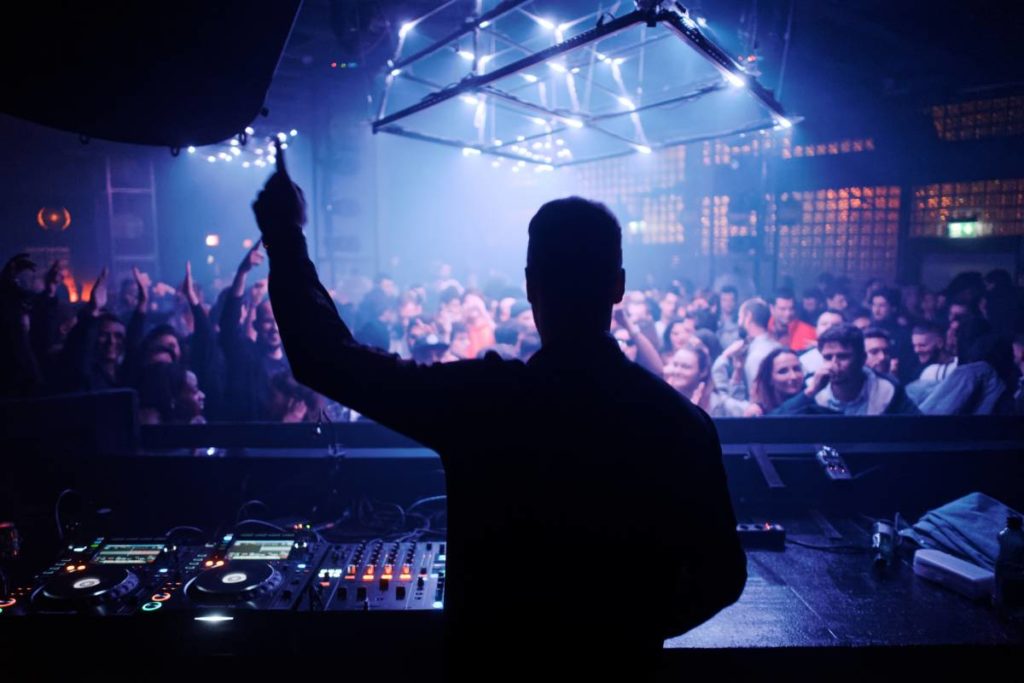
Paradoks. © Foto Ufficio Stampa
A volte è bello avere più o meno lo stesso sound, ma può stancare facilmente. Personalmente non riesco proprio a completare un’idea se è troppo simile a ciò che ho già fatto. Quindi mi piace sempre cambiare, provare qualcosa di nuovo, vedere cosa provo e cosa no, perché la sensazione è la cosa più importante.
Ma questo venerdì mi ha mostrato che in qualche modo, anche testando nuove idee e suoni, il mio modo di produrre rimane riconoscibile come traccia di Paradoks. La mia missione come artista è creare musica che abbia un impatto sulle persone.
Che si debba sperimentare di più, sperimentare di meno, testare nuovi suoni o meno alla fine è tutta una questione di sensazioni: se senti – come tuo (ndr) – quello che stai facendo, allora stai andando nella giusta direzione. E non puoi avvertirlo come tale se rimani bloccato negli stessi vecchi schemi di ciò che ha funzionato in passato.
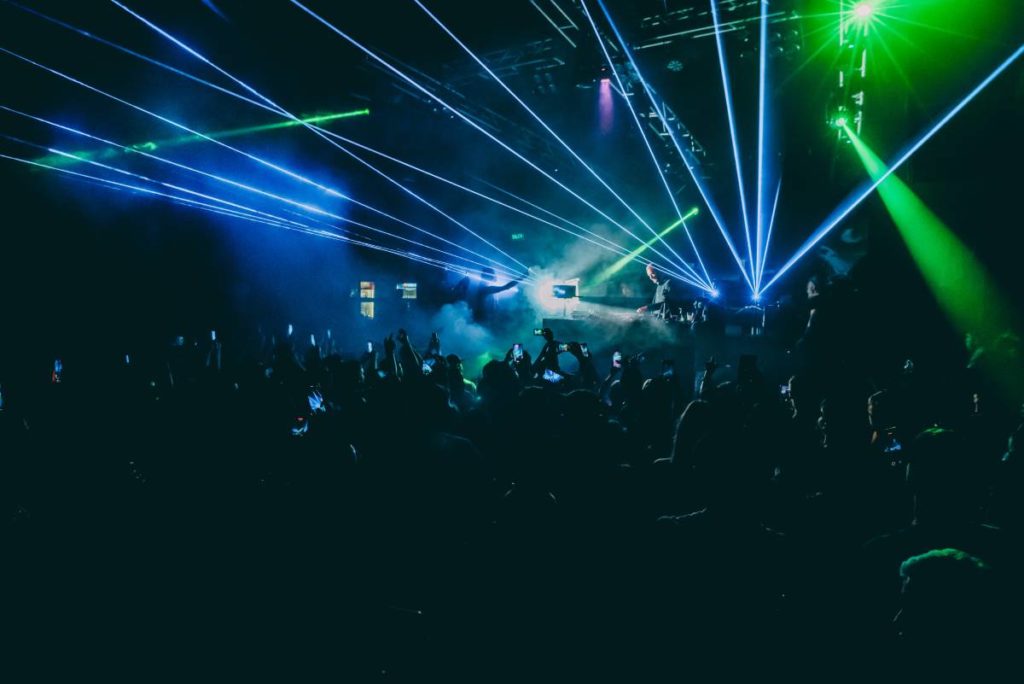
Paradoks. © Foto Ufficio Stampa
Durante uno dei tuoi dj set, immagino che cerchi di seguire un preciso gusto musicale per orientare l’ascolto della pista. Cosa preferisci dell’essere un DJ? L’essere un produttore o un selezionatore di dischi?
Sinceramente amo entrambi gli aspetti e sono difficili da confrontare. Come Dj unisco diversi generi durante i miei dj set. Alcuni brani saranno forti e pieni di energia, poi si passa a qualcosa di più emotivo o magari suonerò un po’ di danza indie nel mezzo, per esempio. Questo modo di fare genera sempre una sensazione di sorpresa nelle persone e fa in modo che non ci sia un momento di noia.
Ogni brano ha il suo scopo specifico sulla pista da ballo, e cerco sempre di empatizzare quanto più possibile con le persone per sapere quando è il momento di abbracciarsi o quando è il momento di far scatenare il pubblico. Per quanto riguarda la produzione musicale: non mi sentirei un artista completo se non facessi i miei brani. Sento un profondo senso di scopo quando creo e non mi sentirei felice se stessi solo costruendo una carriera da DJ basata su altri artisti creazioni.

Paradoks. © Foto Ufficio Stampa
La produzione musicale è infinitamente più difficile dell’essere un selezionatore di dischi. Servono anni e anni per imparare tutto su produzione: sound design, arrangiamento, missaggio. Mi ci sono voluti anni per capire appieno la musica e per fare brani che suonino bene, in grado di creare emozioni e che facciano ballare le persone.
Anche la produzione musicale è un aspetto molto solitario, con giorni interminabili, ore e ore di smanettoni sui piccoli piccoli dettagli per creare una buona traccia. È pieno di blocchi creativi, momenti di dubbio, di affrontare i tuoi demoni interiori e di mettere in discussione la tua esistenza e il tuo valore come essere umano.
Però poi suonare le mie canzoni e avvertire l’impatto che ha sul pubblico, mi fa pensare a quanto ne valga la pena. Vedo più fare il Dj come un divertimento, una ricompensa e un risultato dopo tutte le interminabili ore trascorse in studio per perfezionare la mia arte. La mia vita ha quindi due aspetti: ritirarmi nel mio piccolo bozzolo per fare la mia musica e poi tornare nel mondo reale per suonare ciò su cui ho lavorato.

Paradoks. © Foto Ufficio Stampa
Un lavoro importante è “Sense of Wonder”. In “The Oxford Dictionary of Science Fiction” definisce il “senso di meraviglia” come “una sensazione di risveglio o stupore innescata da un’espansione della propria consapevolezza di ciò che è possibile o dal confronto con la vastità dello spazio e del tempo, come provocata dalla lettura della fantascienza”. Cosa vuoi comunicare con la tua musica?
“Sense of Wonder“ è un brano che ho composto durante la pandemia del 2020. Ho dovuto interrompere il resto del mio tour in Sud America del 2020 e sono tornato bruscamente a casa. C’era ansia ovunque, ed è stato un momento difficile per tutti noi.
Anche per noi artisti è stato davvero difficile, dal momento che non potevamo più fare il nostro lavoro e ho perso molta ispirazione per fare musica. Che senso ha fare musica da ballo se non possiamo più ballare? Fortunatamente, in Svizzera, ci è stato permesso di uscire dalle nostre case, quindi ho camminato molto nei boschi. E più ho iniziato a sentirmi connesso alla natura che mi circondasse, più ho capito quanto fosse bella.
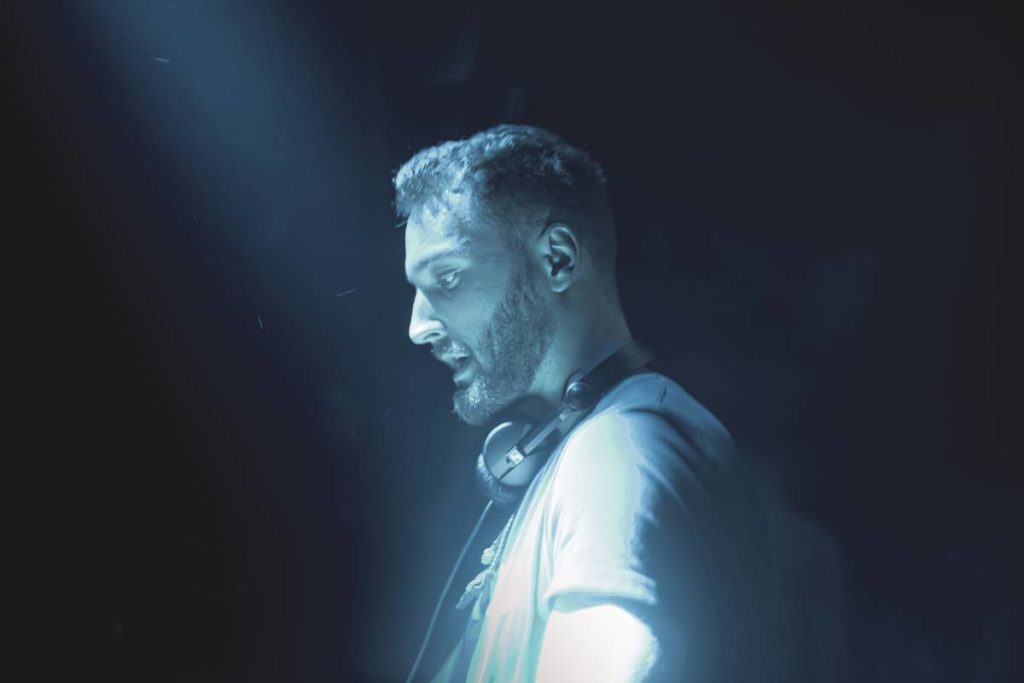
Paradoks. © Foto Ufficio Stampa
Ho trovato la pace e ho ricominciato ad avere fiduca nella vita. Poi sono tornato in studio e ho composto la parte principale del brano che ho deciso di chiamare “Sense of Wonder”, per ricordarci che abbiamo questa pace e questo senso di meraviglia dentro tutti noi. Quindi, in questo caso, ho cercato di fare proprio come dice la definizione dell’Oxford Dictionary of Science Fiction, ma attraverso la musica invece della fantascienza.
Dove suonerai la tua musica nel prossimo futuro? Quali sono i futuri progetti musicali?
Dopo alcuni mesi in studio, sto finalmente ricominciando a rimettermi in viaggio. Suonerò in Svizzera, Germania, Spagna, Francia, Egitto, Sud America e molti altri paesi che sto ancora definendo. Sto anche finendo alcune tracce speciali e spero di condividerle presto.
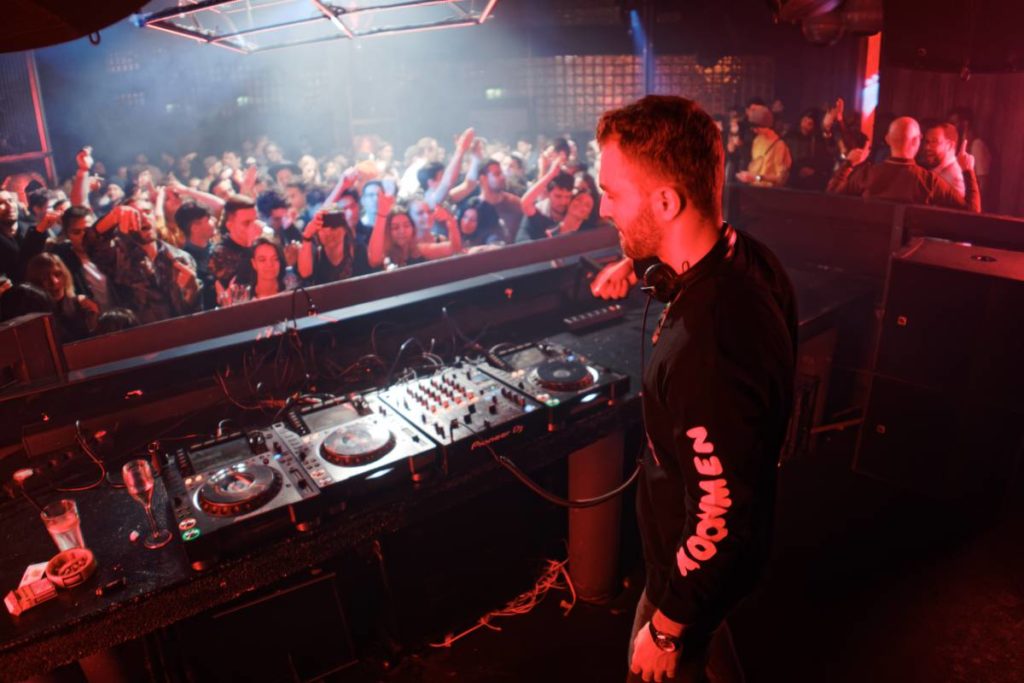
Paradoks. © Foto Ufficio Stampa
ENGLISH VERSION
Hi Paradoks, welcome on Parkettchannel! I would like to start by your name: Paradox is a very strong philosophical concept. Why did you choose the word “Paradoks” to identify your music? Is that meaning connected to the role of nature in your music?
Hi, thank you for having me! Indeed, as you noticed, my artist name Paradoks stems from Paradox, with the k from my real name Kobe. I did not pick this name randomly, there is a bit of story behind it: I chose this name because it was a period of my life that was full of paradoxes. I was studying for my bachelor’s in management, and was making music on the side as Kobe M.
I was just getting into meditation, for example, and I was struggling with the concept of thinking. I wanted to stop myself from thinking, which is not how meditation works. I was telling myself to “Stop thinking!” and realized that this was a thought in itself. And there I was, thinking about stopping to think, which was a big paradox for me back then. You can’t “stop thinking” by thinking about stopping thoughts!
This is just one example of the paradoxes I faced. But there was also an important paradox related to my music: I was already playing my own productions in clubs and had a taste of what a life as a electronic music artist could be like. I knew that this fulfilled me and knew that this was bringing me joy in my life. I therefore really decided to focus on “making it” as an Artist, while finishing my studies to keep other doors open.
But from the moment I decided to have this as a main goal in my life, I started having sleepless nights and a lot of anxiety, which again, caused a paradox: From the moment I started to focus on my passion and tried to make a living out of what I love, I suddenly experienced the contrary and felt strong anxiety in this quest. Our human minds are full of contradictions as well, and it therefore naturally came to me to use Paradoks as my artist name.
For the second question, the meaning of the name isn’t necessarily connected with nature, but I feel personally really connected to nature.
As I told, the connection among your music and nature seems so strong. Do you think that your music is inspired by the sound of the nature? Or maybe do you just prefer to create a contrast between nature and your sound?
As mentioned above, I feel strongly connected to nature: I find peace and quiet in it, which naturally inspires me for my music, but I wouldn’t say that my music is directly inspired by the sound of nature. I often listen to my projects while walking in my forest to give it some context and another perspective, which inevitably connects my music to the surroundings.
When doing a livestream in nature for example, I think of tracks that would really embellish the scenery and add a special moment to it. Regarding contrast, I think it is a really important concept in music and I am applying this more and more to my tracks, but I’m not trying to make a contrast between nature and my sound either.
I much prefer to play in open airs rather than closed clubs, because an open sky is a direct connection to nature, our initial habitat and just adds such a dimension of lightness and joy to the parties.
Your music is characterized by strong kicks and a sharp melodies. A few other artists make this type of groove – I’m thinking about Tale Of Us, about Tiesto’s old productions or Eric Prydz. What kind of feelings do you want to convey with your music?
That’s exactly right: I like strong kicks and good melodies and I always describe my music as melodic and powerful. I want to convey emotions and special moments to the listener through movement, whether that’s dancing, driving, running, biking, walking.
We humans are made for movement, so it’s the most natural way to enjoy it. Having a strong low end is encouraging that motion, while the melodies tell the story. This allows the listeners to interpret the track in their own way and dive in their own imagination.
During 2021 you produced a lot of music. You received support by a lot of big artists like Nora en Pure, Oliver Koletzki and many others. Your sound is so special. Is more important to have an identifying sound than to test always new sound?
It’s funny because I played in Zurich this Friday and tested out some new tracks I made in the last months. Immediately some people came to me asking me if they were my new unreleased tracks. This really shows that I do have my own sound, as people recognize it as my sound without it being released.
This is very positive and also interesting, because I’m not trying too hard to make it sound like me. I think it’s just the way I write melodies and arrange and mix my tracks, basically how it natural comes to me.
For me, it’s important to always try out new things. I have many great tracks sleeping in my library, but I don’t feel them because they sound too much like what I have already done. It’s too comfortable and similar, so I’m not happy with them, it’s too easy. And I believe many artists fall into the trap of constantly doing the same.
Sometimes it’s good to have more of the same, but it can get tiring easily, and I personally just can’t get myself to finish an idea if it’s too similar to what I’ve done. I therefore always like to switch it up, try something new, see what I feel and what I don’t, because feeling is what’s most important. But this Friday showed me that somehow, even when testing new ideas and sounds, it will probably be recognizable as a Paradoks track.
My mission as an artist is to create music that impacts people. Whether you should experiment more, experiment less, test new sounds or not: in the end it’s all about the feeling, so if you’re feeling what you are doing, then you’re going in the right direction. And I don’t feel it if I’m stuck in the same old patterns of what has worked in the past.
During one of your DJ sets, I imagine you try to follow a precise musical taste in order to orient the listening of the dancefloor. Which of the two aspects of being a DJ do you prefer? Be a producer or be a record selector?
I honestly love both, and they are difficult to compare. As a DJ you will hear me go through many different moments and even genres. I will play some strong tracks that are full of energy, switch it up to something more emotional and play some indie dance in between, for example. This always gives a moment of surprise for the people and makes it so that there is no dull moment.
Every track has its specific purpose on the dancefloor, and I try to read the people as much as possible to know when it’s the time for a moment of hugs and love on the dancefloor or when it’s the moment to go crazy. Regarding music production: I wouldn’t feel like a complete artist if I didn’t make my own tracks. I feel a deep sense of purpose when I create, and I wouldn’t feel happy if I was just building a DJ career based on other artists’ creations. In my opinion, music production is infinitely more difficult that being a record selector. You need years and years of learning everything about production, sound design, arrangement, mixing.
It took me years to fully understand music and to make tracks that sound good, create emotions and makes people dance. Music production is also a very lonely aspect, with endless days, hours upon hours of geeking out about the little tiny details to make a good track. It’s full of creative blocks, moments of doubt, of facing your inner demons and of questioning your existence and worth as a human being. But then playing my own tracks and feeling how it impacts the people makes it absolutely worth it.
I see DJ’ing more as a fun reward and a result of all the endless hours spent in the studio to perfect my art. My life therefore has two aspects: retiring in my own little cocoon to make my music and then getting back in the real world to play what I have been working on.

Paradoks
An important work is “Sense of Wonder”. “The Oxford Dictionary of Science Fiction” says about: “a feeling of awakening or awe triggered by an expansion of one’s awareness of what is possible or by confrontation with the vastness of space and time, as brought on by reading science fiction”. What do you want to comunicate with your music? What do you feel when you compose “Sense of Wonder?
Sense of Wonder is a track I composed during the pandemic of 2020. I had to interrupt the rest of my 2020 South America tour and abruptly went back home. There was paranoia everywhere, and it was a difficult moment for humanity. For us artists, it was also really difficult, since we couldn’t do our job anymore and I lost a lot of inspiration to make music.
What’s the point of making dance music if we can’t dance anymore? Luckily, in Switzerland, we were allowed to go out of our houses, so I walked a lot in my forest. And the more I started to feel connected to the nature around us, the more I understood it’s beauty.
I found peace and started trusting life again. I then came back to the studio and composed the main lead of the track which I decided to call “Sense of Wonder”, to remind us that we have this peace and sense of wonder inside all of us. So in this case, I tried to do the same as the definition of the Oxford Dictionary of Science Fiction, but through music instead of science fiction.
Where will you play your music in the next future? What are the future musical projects?
After a few months in the studio, I’m finally starting to get back to on the road again. I will be playing in Switzerland, Germany, Spain, France, Egypt, South America, and many more other countries that I am still defining now. I am also still finishing a few special tracks and I hope to share them soon.
